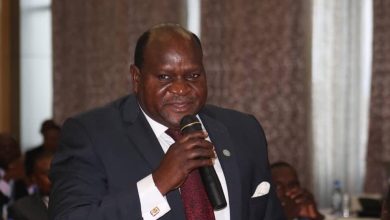Afidep pushes for accelerated socio-economic transformation
The African Institute for Development Policy (Afidep), a regional non-profit research and policy institute established in 2010, continues to play a pivotal role in bridging the gap between research, policy, and practice across Africa. Over the years, Afidep has maintained a long-standing partnership with various arms of the Malawi Government. News Analyst LUCKY MKANDAWIRE engages Afidep founder and Executive Director Dr Eliya Zulu on how the African-led institute—registered in the USA, Kenya, and Malawi—plans to work with the new administration to support the country’s development agenda. Excerpts:

Q. What must Malawi do to ensure sustainable and inclusive development amid population growth?
A. First, the country must promote voluntary reduction in birth rates by ensuring universal access to family planning. Increased investment in health and education will help transform the growing youth population into high-quality human capital, driving the Malawi 2063 agenda.
Malawi can also export skilled labour to ageing economies, boosting foreign exchange through remittances. Our work on sustainable growth and governance will support improvements in public finance management, results-based performance monitoring, and accountability systems. We also aim to help Malawi optimise benefits from regional integration within SADC and the African Union.
We will continue strengthening the technical capacity of parliamentary staff to support MPs in their legislative, oversight, and representative roles. Our support extends to the Parliamentary Committee on Health, the Budget Committee, and cross-cutting caucuses such as the Population and Sustainable Development Caucus, the TB Caucus, and the Women’s Caucus.
Q. How does Afidep ensure its research translates into policy and action?
A. We recognise that policymakers face competing priorities. Our goal is to ensure that trusted, timely evidence is available to inform priority setting, resource allocation, programme design, and implementation—maximising returns on every kwacha invested in development.
Q. What strategies can Afidep use to build government capacity for evidence-based decision-making?
A. Our research shows that government institutions face several bottlenecks, including limited systems for accessing emerging evidence, poor packaging of findings, and inadequate capacity to apply evidence in routine operations.
We use our proprietary curriculum to train senior officials and technical staff in ministries on effective evidence use. We also work with researchers to encourage proactive engagement with policy processes.
Q. How can Afidep help the new government scale up successful programmes and ensure sustainability amid economic challenges?
A.The Democratic Progressive Party (DPP) manifesto aligns well with Malawi 2063. The first step is to transform it into a national manifesto, potentially incorporating strong ideas from other parties. Secondly, the government machinery must be fully aligned and capacitated to implement the manifesto effectively.
Bridging the gap between political vision and civil service readiness is key. We must foster a culture of results-based performance management, accountability, and private sector vibrancy to translate democratic gains into meaningful socioeconomic progress.
I am optimistic that Malawi’s economic outlook will improve if the new administration walks the talk—by enabling private sector growth, enforcing fiscal discipline, and ensuring accountability in service delivery and anti-corruption efforts.
Let me know if you’d like this formatted for print layout, or adapted for online publication with subheadings, pull quotes, or social media teasers.





